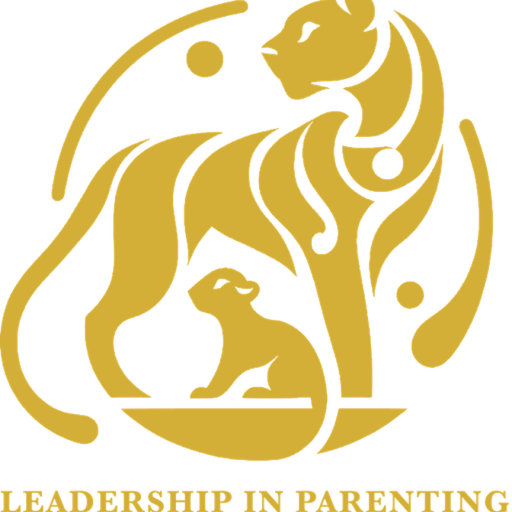Module IV –
The Leader Child Avatar
A leader child is characterized by a unique blend of confidence, empathy, responsibility, and resilience. They think independently, make choices rooted in personal values, and lead by example rather than command. This child shows a strong sense of responsibility, understanding that their actions affect others and willingly accepting accountability.?
Description
Raising a leader child involves a holistic approach that takes into account all aspects of their development. By focusing on the environment (medium), activities, behavior, abilities, convictions, values, mission, and spirituality, parents can guide their child to grow into a well-rounded leader. Here’s how a parent can nurture leadership qualities within each of these areas:
1. THE MEDIUM (Environment)
To foster a leadership mindset, create a home environment that encourages open communication, curiosity, and learning. This medium should be a safe space where the child feels respected, valued, and free to express themselves. Encourage exploration by providing books, puzzles, and engaging discussions that stimulate their mind. Expose them to diverse perspectives and cultures to broaden their worldview, helping them understand the importance of inclusivity and empathy—both key qualities of a leader.
2. ACTIVITIES
Choose activities that promote teamwork, resilience, and critical thinking. Enroll them in sports, team-based games, or creative arts where they can learn cooperation, patience, and problem-solving. Allow them to lead in small ways during family activities or projects, like organizing a family trip or helping plan a meal. These experiences help build decision-making skills and resilience, especially when they learn from both success and failure.
3. BEHAVIOUR
Model the behavior you want to see in a leader. Demonstrate respect, empathy, and integrity in your interactions, as children often emulate their parents. Encourage them to take responsibility for their actions and to practice self-reflection. When they make mistakes, guide them in understanding the consequences and learning from the experience instead of focusing solely on discipline. This helps them build accountability and resilience.
4. ABILITIES
Identify and nurture your child’s unique abilities. Encourage them to develop skills in areas where they show interest, be it in academics, sports, the arts, or technology. Help them set small, achievable goals to build confidence and a sense of accomplishment. Leadership often requires a broad skill set, so encourage them to explore new things and challenge themselves, fostering adaptability and growth.
5. CONVICTIONS
Help your child develop strong convictions by discussing and exploring their interests, opinions, and beliefs. Ask open-ended questions to encourage critical thinking, such as “What do you think about this?” or “Why do you feel this way?” Reinforce the importance of standing up for what they believe in, while also respecting others’ beliefs. This nurtures a sense of purpose and the courage to uphold their values, even in the face of opposition.
6. VALUES
Instill core values such as integrity, kindness, respect, and fairness by consistently demonstrating these qualities yourself. Engage in family discussions about values, using real-life examples to illustrate why they matter. Encourage them to consider the impact of their actions on others and to act in ways that reflect their values. Reinforce the idea that a true leader acts with integrity, and their actions should align with what they believe is right.
7. IDENTITY
A leader’s strength comes from a well-rooted sense of identity. Help your child discover who they are by encouraging self-reflection and open communication about their interests, passions, and unique traits. Celebrate their individuality and teach them that leadership doesn’t mean fitting a mold but embracing who they are. Foster self-confidence by allowing them to express themselves freely, and encourage them to make choices that align with their personal values. When they feel secure in their identity, they’re better equipped to lead with authenticity.
8. MISSION
Help your child discover their unique mission or purpose by exploring what they are passionate about. Discuss what kind of positive impact they want to have on the world and encourage them to set personal goals that align with this vision. Support them in activities that resonate with their passions, whether it’s environmental projects, community service, or creative pursuits. Knowing their mission helps them lead with intention and dedication.
9. VISION
Cultivate a sense of vision by helping them imagine their future and the impact they wish to create. Encourage them to think beyond immediate goals, envisioning how they want to contribute to their community, society, or world at large. Support their dreams and aspirations, reinforcing the importance of working toward long-term goals. Having a vision gives a child a guiding star, shaping their actions and choices with purpose. A strong vision enables them to lead with clarity and foresight, grounded in their aspirations for a brighter future.
10. SPIRITUALITY
Support the child’s spiritual growth by teaching them mindfulness, compassion, and gratitude. Introduce them to practices such as meditation, reflective thinking, or journaling, which help them connect with themselves and find inner peace. Encourage them to reflect on their experiences and to consider a purpose beyond themselves, fostering a sense of humility and connection with the world. Spirituality nurtures a leader’s empathy and resilience, helping them stay grounded and compassionate in challenging situations.
By intentionally addressing each of these areas—environment, activities, behavior, abilities, convictions, values, mission, and spirituality—parents create a foundation that supports their child’s growth into a well-rounded, empathetic, and confident leader. This balanced approach cultivates not only the child’s leadership skills but also their sense of purpose, integrity, and self-awareness, guiding them toward meaningful and impactful leadership.

